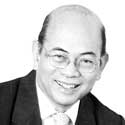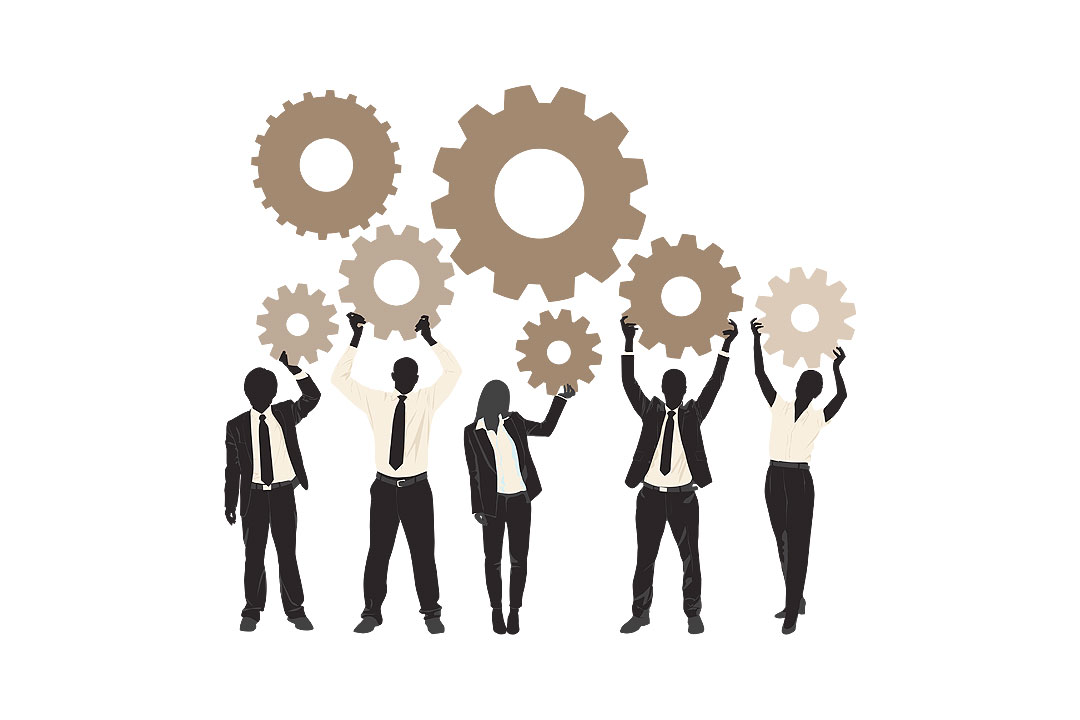
Human Side Of Economics
By Bernardo M. Villegas

(Part 2)
Work is not just a means to increase the amount of goods and services available for consumption in a given society. The worker is not just a “factor of production” to be lumped together with land, capital, and technology. It is a means by which man carries out God’s command to “subdue the earth.” It is also the main means through which man responds to Christ’s command to be “perfect as His heavenly Father is perfect.” It is an instrument for him to attain sanctity in this world. As St. John Paul II wrote in his encyclical On Human Work: “Work is a good thing for man. It is not only good in the sense that it is useful or something to enjoy; it is also good as being something worthy, that is to say, something that corresponds to man’s dignity, that expresses this dignity and increases it… Work is a good thing for man — a good thing for his humanity — because through work man not only transforms nature, adapting it to his own needs, but he also achieves fulfilment as a human being and indeed, in a sense, becomes ‘more a human being.’”
The Pope then explains why industriousness is a human virtue. Precisely because work is a response to God’s command of subduing the earth and of becoming perfect as his heavenly Father is perfect, there is a moral obligation to link industriousness (the habit of working well) as a virtue with the social order of work, which will enable man to become, in work, “more a human being” and not degraded by it, not only because of the wearing out of his physical strength (which, at least up to a certain point, is inevitable), but especially through damage to the dignity and subjectivity that are proper to him. Added to this personal dimension of work is the reality that work constitutes a foundation for the formation of family life, which is a natural right and something that man is called to. These two spheres of values — one linked to work and the other consequent on the family nature of human life — must be properly united and must properly permeate each other. In every society, work is a condition for making it possible to found a family, since the family requires the means of subsistence which man normally gains through work.
The whole concept of work-life balance is captured very well in these words of St. John Paul II: “Obviously, two aspects of work in a sense come into play here: the one making family life and its upkeep possible and the other making possible the achievement of the purposes of the family, especially education. Nevertheless, these two aspects of work are linked to one another and are mutually complementary in various points.” In this regard, the many lockdowns during the pandemic highlighted the increased consciousness of married couples about the primordial importance of balancing the requirements of renumerated work and the duties of parents in the education of their children. The greater amount of time that could be spent at home enabled the parents to focus more on the character education of their children as well as in their academic formation as they had more opportunities to oversee the manner in which their children were participating in the online learning made necessary by the lockdowns.
The design of work in the post-pandemic world should take into account this greater awareness of the possibilities of striking a more desirable work-life balance in the various sectors of the economy. It is good to note that in the AmBisyon Natin 2040 study conducted by NEDA (the National Economic and Development Authority) in 2016, work-life balance was one of the highest aspirations of the respondents as they defined their ideals of a happy and fulfilled life. AmBisyon Natin 2040 represents the collective long-term vision and aspirations of the Filipino people for themselves and for the country in the next 25 years. It describes the kind of life that people want to live, and how the country will be by 2040. As such, it is an anchor for development planning across at least four administrations. It is also a wake-up call to executives and managers in the private business sector about what their workers consider as the higher values in life. The vision that the 300 citizens who participated in the survey of life in 2040 highlights very much the family-centered definition of human fulfillment: “In 2040, we will enjoy a stable and comfortable lifestyle, secure in the knowledge that we have enough for our daily needs and unexpected expenses, that we can plan and prepare for our own and our children’s future. Our family lives together in a place of our own, and we have the freedom to go where we desire, protected and enabled by a clean, efficient and fair government.”
Even more specific is the reference to work-life balance as the respondents defined the Filipino word “matatag” (stable, sturdy, solid). This is defined to mean that “Filipino families live together, there is work-life balance so that there is time to spend with family even for members who work. On weekends, families and friends enjoy time together in parks and recreational centers. It is a high-trust society with a strong sense of community. There are volunteer opportunities, and Filipinos spend time to serve the community, help others who are in need and contribute to various causes.”
At least for white collar workers, the pandemic opened their eyes to benefits to work-life balance of the possibility of working at home. This realization will surely influence their work preferences post-pandemic and the conditions that many of these white-collar workers would be setting to continue working for their present employers. Although some of the cultural factors may differ, it would be useful to study closely the reasons for the so-called “Great Resignation” that is now taking place in the United States where more people are quitting their jobs at a higher rate than normal before the pandemic. According to the US Department of Labor, 4.3 million people quit their jobs in August 2021, the highest record dating back to December 2020. There were 11.5 million workers who resigned during the months of April, May, and June of 2021.
In an article by Shareen Luze, head of culture and field experience of RBC Management in the US, the human-centered approach to management of workers was highlighted. She stressed the obvious: “One thing we learned from the pandemic is we all have lives outside of the office. Before, working parents may have shushed a child who asked for help while they were on a Zoom meeting. Now, I see lots of parents who are more comfortable with their child making a surprise appearance.” This greater desire for work-life balance, especially as regards the necessary attention that parents have to give to the upbringing of children explain to a great extent the much higher value that workers give to flexibility in their work schedule. A recent survey showed that 56% of workers in the US said flexibility was their primary reason to look for a new job, even more so than higher pay. If this is so in the US, I would venture to say that this would even more true in the Philippines in which there is still a preference for large family size.
Once the pandemic is put under reasonable control, there are many lessons that Philippine employers of white-collar workers can learn from what Ms. Luze describes as the work environment of RBC Management. “At RBC Wealth Management, we’ve committed to flexible work schedules with time in the office (when it’s safe to do so) and time at home. Over the past 18 months, it’s become clear that not every employee has to be in the office every single day. Enabling a greater portion of the work force to work remotely will promote greater flexibility for employees who, for a multitude of life circumstances, can’t always be in the office from nine to five.”
(To be continued.)
Bernardo M. Villegas has a Ph.D. in Economics from Harvard, is professor emeritus at the University of Asia and the Pacific, and a visiting professor at the IESE Business School in Barcelona, Spain. He was a member of the 1986 Constitutional Commission.